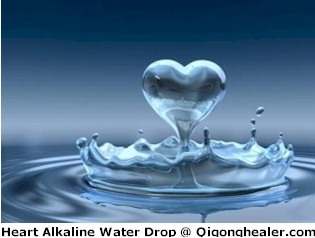 |
 |
|
 Dehydration 101
Dehydration 101How much water should I drink in a day? Do you ever ask yourself this question? Here are some clear cut answers to guide you to your hydration needs.
This may seem like the most basic topic and everyone likely feels they know to drink enough water, yet studies show that most athletes and exercisers do not consume enough fluid to support their needs. And furthermore, most individuals don’t realize that the reason they feel sluggish or have a bad workout is due to inadequate hydration. So what is dehydration? It is simply a decrease in body fluid from a normally hydrated state. Exercise induced hydration can occur if you do not drink enough fluid before or during exercise or if you lose too much fluid due to sweating. Dehydration can make your workouts feel much harder. Just a 2% loss in body weight due to inadequate fluid intake or sweating can impair aerobic or endurance exercise performance. If you are consistently working out in a dehydrated state that is affecting performance, this will most certainly hinder your ability to achieve your fitness goals. Symptoms to watch for:
The simplest way to determine if you are getting enough fluid is to monitor your urine color and amount. A large volume of light-coloured urine means hydration is sufficient. A small amount of dark-colored urine indicates more fluid intake is required. Did you know that 20% of our fluid intake comes from food we eat and 80% comes from beverages we consume (including water, juice, milk, coffee and tea). Adequate intakes for fluid (19+)
There is no one size fits all answer to adequate fluid intake. Individuals vary in the amount that they sweat and excessive sweating can double or even triple a person’s requirements. However, generally an individual will have consistent sweat rates within themselves so a customized hydration schedule is achievable. The best starting point is to follow the Adequate intake requirements. For most individuals, following this requirement and drinking a little extra before, during and after exercise will provide adequate hydration. What should you drink during your workouts? For activities lasting 60 minutes or less, plain water is sufficient. For longer activities, highly intense activity or exercise in a very hot environment diluted juice or a sports drink may be better What about after my workout? Many different beverages can contribute to hydration after a workout such as plain water, chocolate milk, and sports drinks. After a normal workout water is sufficient, but after a very intense or long training session and if you are exercising again the next day then a carbohydrate containing drink may help with recovery. In regards to muscle repair, a drink containing protein and carbohydrates may also be advisable. Muscle cramping Have you ever woken up in the night and can’t move your calf because the muscle is so cramped up your leg is essentially frozen. This may be associated to dehydration and low blood sodium levels. Heavy sweaters and salty sweaters are more susceptible to skeletal muscle cramping and may require a personalized hydration plan to deal with this issue. Challenge yourself Fill a jug with your required intake for the day and challenge yourself to finish it off before the day is done. |
||
 |
 |
 |
 |
|||||
Article Categories
|
||||||
 |
 |
|||||